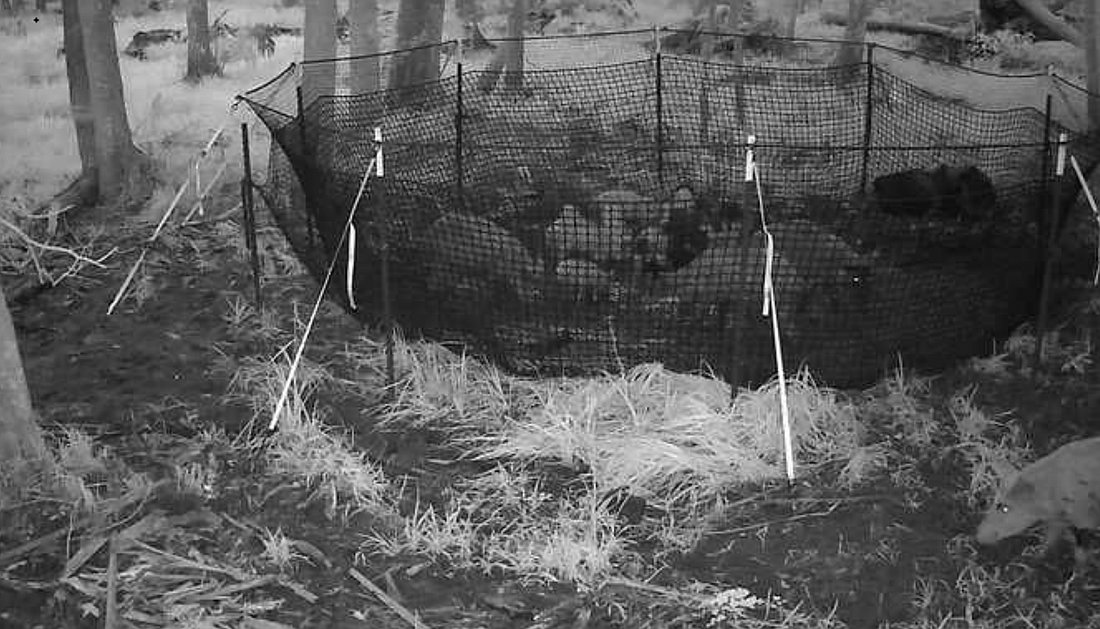- December 13, 2025

Flagler County is looking into new ways to handle a wild hog issue plaguing Flagler County residents.
Public Lands and Natural Resource Manager Michael Lagasse said land management has been trying out two new methods to study and capture nuisance hogs on county lands: drones to track and study the hogs and corral traps to capture multiple at once. The hogs are an invasive species, Lagasse said, with an estimated population size of more than 500,000 in Florida alone.
The issue is how quickly wild hogs can procreate. Female wild hogs are sexually mature at nine months old and have a four-month gestation period when pregnant. Lagasse said a 2016 study calculated that wilds hogs caused almost $6 million in property damage in Florida that year.
“Local residents in HOA neighborhoods have reported needing to spend thousands of dollars in repeated impacts from homes in recent years just in our county alone,” Lagasse said.
In December 2022, Grand Haven residents were clashing with their homeowners association over the hogs tearing up their yards and scaring residents. A year later, Nancy Crouch, an elected representative of Grand Haven and a Community Development District supervisor, said the hogs are causing increasing damage.
“It got to be so bad that we tried to figure out what measures can we take here, you know,” Crouch said. “So we've been trying to hire our own trappers and it's been hard to find trappers that are licensed and insured.”
One of the new tools Land Management staff has implemented is a corral trap that can capture multiple hogs at once in a humane way.
The traps cost $2,500, not including the posts needed to install and the corn or feed to draw the hogs. Once the trap is set, Lagasse said, it doesn’t need to be moved — it can be reset repeatedly and feed placed in the center to draw the hogs.
The problem, Lagassee said, is then finding the volunteers to come out and dispatch the caught hogs. The county requires hunters and trappers to have a $1 million insurance policy and a state license to operate on its lands.
He said he’s working on an initiative that would allow staff to dispatch the animals.
Lagasse said private residents can implement physical barriers like electric fencing or hog panel fencing or trap or hunt hogs themselves.
Grand Haven does not allow fencing, she said, but is looking into solutions. That’s why she said she was grateful for the workshop meeting the Flagler County Commission hosted. It shows they’re taking the issue seriously, she said.
Crouch’s biggest concern is resident safety.
“Property damage is one thing,” she said. “But hogs get aggressive, and some hogs have come up to people's front doors, you know, around here.”
For now, Crouch said Grand Haven will continue reporting the hog sightings to the county and educating the residents. She said the CDD plans to keep following up on how the hogs are managed. It’s going to take a multi-pronged approach, she said.
“I don't think the problems ever going to go away,” Crouch said. “But we have to be able to figure out a way to manage it, even if we work with other entities to help do that.”